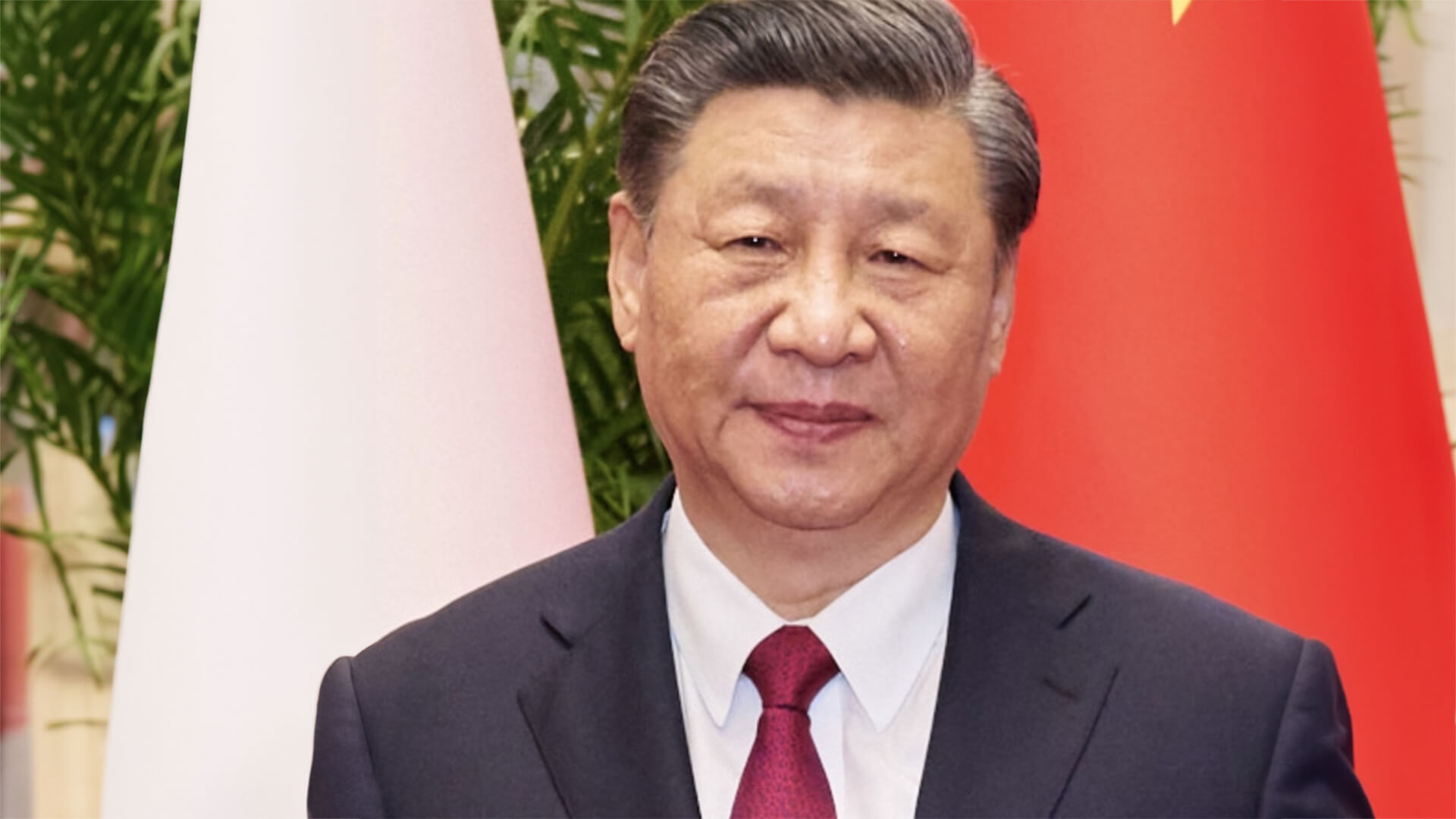TECHNOVATION INTERVIEW
Here is a link to my interview with Peter High on Technovation. We covered topics intersecting demography, economics, energy, politics, technology, and security.
I get a lot of “what if…” and “what happens next…” style questions and most of them suck, but today’s question takes us down a fairly interesting rabbit hole – what happens to China if Chairman Xi Jinping dies or steps down?
Remember, I didn’t say that this rabbit hole was going to be a happy one, just that it was interesting. So instead of the headlines reading “China Flourishes Following the Death of Xi Jinping”, I would expect something more along the lines of “China Moves One Step Closer to Collapse”.
Between the gutted political system that Xi would leave in his wake and a faltering economy, China wouldn’t exactly be set up for success. The Chinese would likely have to scrap their current state structure and develop an entirely new system.
The bottom line is that Xi Jinping has caused plenty of problems during his time leading the country, but removing him from the picture isn’t going to magically solve those problems overnight.
Here at Zeihan On Geopolitics we select a single charity to sponsor. We have two criteria:
First, we look across the world and use our skill sets to identify where the needs are most acute. Second, we look for an institution with preexisting networks for both materials gathering and aid distribution. That way we know every cent of our donation is not simply going directly to where help is needed most, but our donations serve as a force multiplier for a system already in existence. Then we give what we can.
Today, our chosen charity is a group called Medshare, which provides emergency medical services to communities in need, with a very heavy emphasis on locations facing acute crises. Medshare operates right in the thick of it. Until future notice, every cent we earn from every book we sell in every format through every retailer is going to Medshare’s Ukraine fund.
And then there’s you.
Our newsletters and videologues are not only free, they will always be free. We also will never share your contact information with anyone. All we ask is that if you find one of our releases in any way useful, that you make a donation to Medshare. Over one third of Ukraine’s pre-war population has either been forced from their homes, kidnapped and shipped to Russia, or is trying to survive in occupied lands. This is our way to help who we can. Please, join us.
Transcript
Hey, everybody. Peter Zeihan here coming to you from Colorado’s lost wilderness. This is a lost canyon. A little bit of a bushwhack, but it’s been a good day. anyway, I’ve started my backpacking season, so we’re going to be taking a lot of entries from the ask Peter Files. I’ll try to do some current event ones, but, you know, I’m not going to be able to upload every day, so, you know, it is what it is.
Anyway, today’s entry is what happens to China when Xi dies. So, you know, that’s a great question. a couple things to keep in mind. A number one has, imprisoned and executed his way into being a cult of personality. There is no successor. There is no potential successor. There is no up and coming cadre of people with talent.
He is basically purge the entire system of any within of ambition or competence. And so it is just him and the bureaucracy now is going after things like patents and college dissertations, so that no one who is under age 25 can even get into the system in the first place. So it is just Xi, it is Xi alone, and he will ride the system into the ground.
It’s so much worse than that sounds because China is not a normal country. So there are different sorts of governing systems. confederal federal and unitary, confederal. Your regions have more power than the center. So think Switzerland or Canada. In a federal system, there’s a shared competence, among the national government, the regional government and the local governments think Germany or maybe the United States.
And then there are unitary systems where, the national government basically sets all policy and everyone just has to go along with it. that’s Russia, that is France, that is Argentina. technically,
China’s federal, but because of the purges and because of the control of the Communist Party, it is basically become super unitary, where everything that happens in Beijing is the only thing that matters, because she is purged all of the regional local governments of anyone who has any capacity.
There’s additional problem here. and that’s just the geography of China itself. it is not an easy place to rule. You have a lot of varied geographies that look to different parts of the world, much less different parts of the country for leadership and economic growth. So, for example, if you’re in the series of cities on the southern coast, roughly from Fujian to Gwangju, you don’t have an interior, you don’t have access to local agricultural product, and you don’t have access to one another.
What infrastructure exists in this area has been built just in the last 30 years, and I don’t mean to suggest it’s not impressive by any standards it is, but it’s nothing like, say, being in the Midwest or in northern Germany, where the land is flat and infrastructure is easy. And so all these cities have their own individual identities.
And historically speaking, all of them have gotten the majority of their calories going back 1500 years from somewhere not on the Asian mainland. Then you got the center section from Shanghai up to,
Chongqing. There we go. Oh, the one province. this is kind of the. This is the area of the Yangtze River. This kind of the Mississippi of China.
Think of it. It is Detroit and Minneapolis and Saint Louis and New Orleans and Houston all in one. definitely a discrete economic unit with discrete political and cultural identity. And then you’ve got the North, the north China playing around, the yellow River. This is an area that is pretty flat. And the problem is, is it’s just it’s been too big, historically speaking, to be all under one power until the industrial era.
And so you would generally have warlords trying to take over individual chunks of the territory. And because this is also a flood and drought prone area, the waterworks were necessary to maintain the population. So when a warlord thought he was going to lose or wanted to launch an attack on a neighbor, he’d go after the waterworks anyway. So you get this nationalistic, militaristic north.
You get kind of a corporatist industrial financial center. And then what has traditionally been a secession of South and keeping these all under the same rubric, under the same governing system is hard. And so you have to basically look at Chinese history from this point of view and that there’s kind of two models. Model number one is each region has as much autonomy as it can stomach.
And the whole thing spins apart. In the north in particular falls into civil war. There’s a reason why all of China’s dynasties never last very long. It’s hard to hold this all together, or you overcompensate the other direction and hyper concentrate authority in Beijing under the Emperor, or now under the Communist Party general secretary, and hold everything as tight as possible.
Neither of them last for long, and unfortunately, there’s nothing in between that works really well either. Kind of a confederal system would just lead to friction and eventually conflict among the various sections. Well, at the moment we are clearly having a hyper centralized system. So we have a hyper centralized system in a geography that is difficult to govern.
But now everything is being all the decisions being made in Beijing, we have a unitary system because the party is eliminated. Everyone who isn’t Xi and Xi himself is not a spring chicken. I mean, he’s not like Biden or Trump old, but the dude can’t be around for much longer and there’s no one in the wings waiting to take over. So when this breaks, you take the most hyper centralized
Iteration of China we have ever had? And you cut off the head at a time when the country is facing financial overextension and a demographic collapse. So when Xi dies, however, that happens, there will not be another government of China.
We will be facing state dissolution because the demographic situation is so bad, it’s entirely feasible that we have a collapse in the country’s ability to generate any economic activity. Of note, before such time as something can theoretically rise on the other side of this. So we could we probably are looking at the end of the Han ethnicity as a player in international affairs, because by the time we get to the end of the century, there aren’t going to be a lot of them left. So when Xi goes, that’s it, the party’s over. All right, so you guys from the next canyon.








